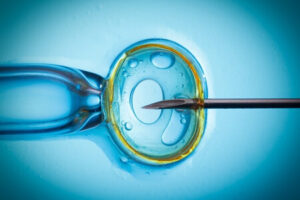 Embryo culture can be seen as one of the most crucial steps of the IVF treatment cycle because it is the one that determines whether the cycle will be a success or not. The embryologists work on getting multiple embryos during the process but not all of them need to mature for successful implantation in the uterus. Perhaps, this is the reason why focus is laid on fertilizing multiple eggs to obtain multiple embryos.
Embryo culture can be seen as one of the most crucial steps of the IVF treatment cycle because it is the one that determines whether the cycle will be a success or not. The embryologists work on getting multiple embryos during the process but not all of them need to mature for successful implantation in the uterus. Perhaps, this is the reason why focus is laid on fertilizing multiple eggs to obtain multiple embryos.
During an IVF attempt, it is common for the embryos to stop growing in the lab during various stages of embryo culture. This condition is known as embryonic arrest and can happen at any stage; while some embryos do not reach past the single cell/zygote stage, many others succumb to embryo arrest during the cell division process, the cleavage stage, before they reach the stage of implantation.
What could be the probable reasons for embryo arrest?
The embryos might stop growing in the IVF lab due to a variety of reasons, some of which could be natural while others could be the result of human error in the IVF lab.
- More often than not, genetic factors may be responsible for embryo arrest. The oocytes(eggs) of an older woman have a high risk of developing into embryos with chromosomal defects when they do get fertilized. In such cases, the embryo growth gets arrested as a natural defense mechanism to prevent the birth of a baby with a genetic defect.
- Another possible reason for embryonic arrest in the lab is mitochondrial defect, a condition which is again common in older women. Mitochondria are the cellular power units, which fulfill the energy needs of the developing embryo. Since the embryos get the mitochondria from the oocyte of the mother, the ones that come from older women may not provide enough energy to carry out the cell division effectively, thus resulting in the arrest of embryo growth.
- The genetic material from the mother as well as the father is carried by the embryo, the formation of which takes place when the egg is fertilized by the sperm. It is this genetic information that is responsible for the single-celled embryo growing into a baby. In the beginning stages (up to 4-8 cell stage), it is only the genetic information of the egg that is responsible for the cell division. Only after reaching this stage does the embryo genome (the first cell of human life) get activated and further development takes place. In some embryos, development is arrested when the genome activation fails.
- The other major reason for embryonic arrest in the IVF lab is the absence of optimal culture conditions therein. For instance, the culture medium might be infected or there may be a malfunction in the incubator. When the embryo gets sub-optimal conditions in the lab, the process of cell division is hindered and it stops growing. When the patient suspects a lack of lab care, they have a right to question the embryologist about the growth arrest
Once the embryo stops growing in the lab, nothing can be done about it, though it can be taken as a lesson. The key lies in finding the actual cause of the embryonic arrest. Any of these reasons could be responsible for the stopping of embryo growth in the lab and if it happens due to human error, the patient has all the rights to demand a reason and switch over to another IVF clinic for a subsequent attempt.
What can be done to reduce the chances of embryonic arrest in the subsequent IVF attempt?
The problem of embryonic arrest during IVF treatment is more prevalent in older women because the egg quality deteriorates with the maternal age. Here, the use of donor eggs may be seen as a feasible way to increase the success rate of embryo growth in the IVF lab.
Similarly, a new technique called cytoplasmic transfer (a process in which the cytoplasm of a younger woman’s oocyte is transferred to an older woman’s oocyte) is being recommended for restoring the developmental ability of the embryo.
In case the embryo growth is arrested for a younger woman, the problem could lie in the lack of competence of the IVF clinic. The answer here lies in trying out a different and more trustworthy IVF clinic for the subsequent cycle.
Here again, if the next attempt fails despite opting for the best clinic, cytoplasmic transfer may have to be considered as the next alternative. However, this technique is not very popular at present because it is still in its developmental stages.
Couples who have experienced embryonic arrest in their previous IVF cycle can take the second opinion of Dr Manika Khanna, the renowned fertility specialist at Gaudium IVF Center, and improve their chances in the next cycle.



